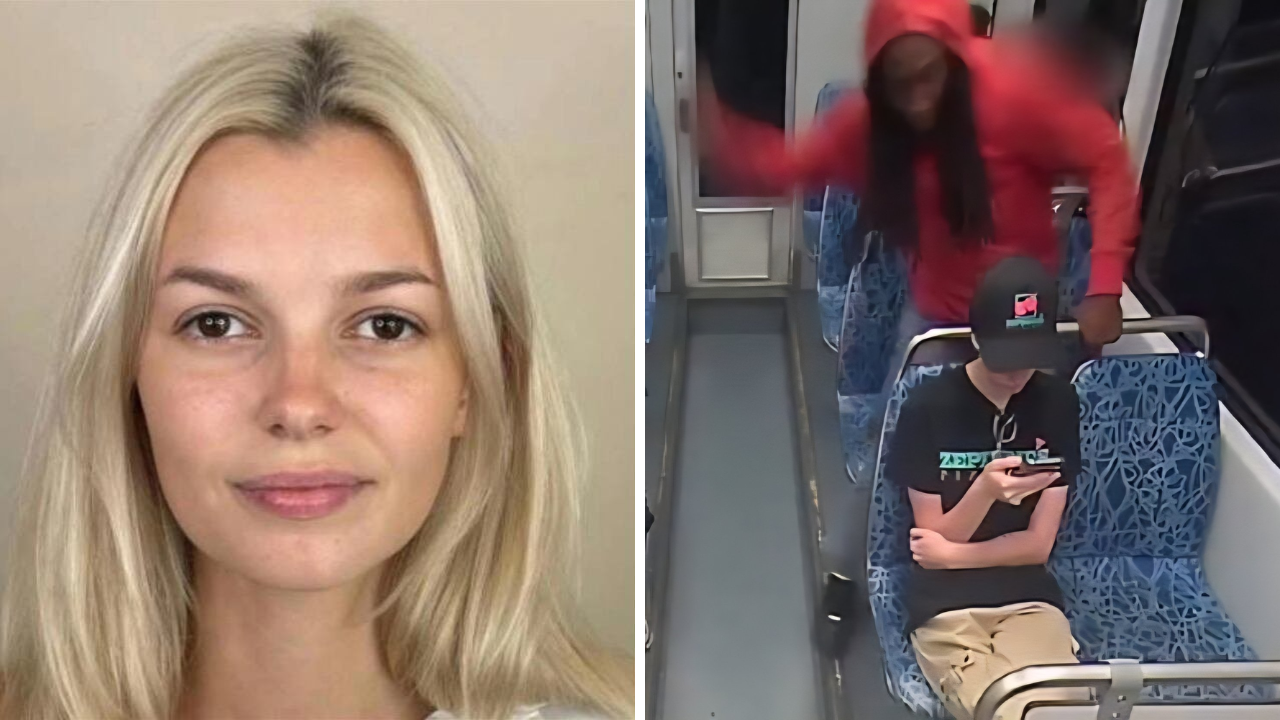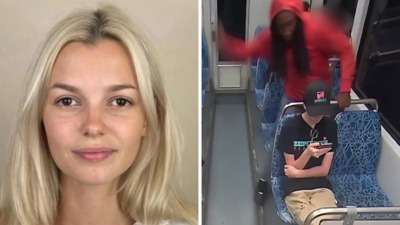
The Silent Message: Unraveling the Tragic Death of Iryna Zarutska
In a world where digital traces often outlive us, imagine a voicemail inbox frozen in time—11 unread messages, the final one a haunting 12-second clip of hurried footsteps fading into eerie silence. This chilling scenario evokes the abrupt end of Iryna Zarutska's life, a 23-year-old Ukrainian refugee whose brutal murder on a Charlotte light rail train has sparked outrage, debates on public safety, and accusations of media bias. While no such voicemail has been reported in connection to her case, the metaphor captures the sudden, unspoken horror of her final moments: a young woman fleeing war, only to meet violence in a place she sought refuge.
Iryna Zarutska fled Ukraine in 2022 with her mother, sister, and brother, escaping the devastation of Russia's invasion. Settling in Charlotte, North Carolina, she embraced her new life as a talented artist and aspiring veterinary assistant. She graduated from Synergy College in Kyiv with a degree in Art and Restoration, and in the U.S., she attended Rowan-Cabarrus Community College from 2023 to 2025. Known for her radiant smile and love for animals, Zarutska often walked neighbors' pets and gifted artwork to friends and family. She worked at Zepeddie’s Pizzeria, a job that symbolized her fresh start in America.

On August 22, 2025, around 9:46 p.m., Zarutska boarded the Lynx Blue Line light rail at the East/West Boulevard station, dressed in her pizzeria uniform. She sat down, scrolling through her phone, unaware of the danger lurking behind her. Four minutes later, 34-year-old Decarlos Brown Jr., a homeless man with a history of mental health issues and prior arrests, pulled out a folding pocket knife and lunged at her. He stabbed her three times, at least once in the neck, in an unprovoked attack. Surveillance video, released by the Charlotte Area Transit System (CATS) on September 5, captures the gruesome scene: Zarutska clutching her neck as blood spills onto the floor, collapsing in her seat. She was pronounced dead on board the train.
Brown exited at the next stop, where police recovered the knife near the platform. He was treated for a cut on his hand before being arrested and charged with first-degree murder. Court records reveal Brown's extensive criminal history dating back to 2011, including charges for felony larceny, robbery with a dangerous weapon, and communicating threats, though many were dropped. Authorities confirmed the victim and suspect did not know each other, and no motive has been disclosed, though the attack has not been classified as a hate crime despite controversial audio evidence.
The video footage, which has circulated widely online, has intensified public fury. Extended clips show the stabbing from multiple angles, Zarutska's collapse, and Brown leaving the scene. Audio analysis suggests Brown muttered, “I got that white girl,” as he walked away, fueling claims of racial motivation. This phrase, captured in the grainy recording, echoes like a distorted voicemail—a brief, chilling soundbite amid the chaos. No security personnel were in the train car, though officers were one car ahead. Bystanders' inaction has drawn sharp criticism; several minutes passed before anyone approached to help, with passengers looking away or frozen in place. “Not a single person stepped in to help. Nobody cared,” conservative influencer Braeden Sorbo remarked, calling it a radicalizing moment.
The case has become a flashpoint in broader discussions on crime, mental health, and urban safety in Democratic-led cities. Critics, including former President Donald Trump, have cited it as evidence of “soft-on-crime” policies, pointing to Brown's repeated releases on no-cash bail as recently as January 2025. U.S. Attorney General Pam Bondi announced federal charges against Brown, stating, “Iryna Zarutska was a young woman living the American dream—her horrific murder is a direct result of failed soft-on-crime policies.” Charlotte City Council member Dimple Ajmera called for immediate safety measures on public transit during a meeting, emphasizing the need to restore rider confidence.

Media coverage—or lack thereof—has fueled additional controversy. Conservative outlets and social media users accuse mainstream media of “deafening silence,” particularly given the racial dynamics and graphic video. Elon Musk amplified posts highlighting the disparity, comparing it to extensive coverage of other incidents like George Floyd's death. CNN's reporting drew backlash for downplaying the attack, shaming those labeling it racist, and omitting the audio quote. Robby Soave of The Hill noted the media's “failure to cover” the stabbing, blaming MAGA for politicizing it. Piers Morgan's Uncensored debated the coverage, calling it a “wake-up call for humanity.”
Zarutska's family, heartbroken, launched a GoFundMe that raised over $12,000 to support her relatives in Ukraine. Her obituary paints a picture of a vibrant life cut short: “Iryna came here to find peace and safety and instead found tragedy.” Social media tributes emphasize her innocence, with one Instagram post lamenting her last moments: “scared, alone, and dying.” Others speculate on demonic influences or societal apathy, but the core issue remains unchecked violence on public transport.
As the case progresses, with Brown facing federal prosecution alongside state charges, questions linger about prevention. Why was a man with 14 prior arrests and mental health issues free to board without a ticket? The silence in the video—Zarutska dying quietly while passengers avert their eyes—mirrors broader societal failures. No hurried footsteps to aid her, just the echo of indifference.
This tragedy underscores the vulnerabilities of refugees and the urgent need for reforms in mental health support, bail policies, and transit security. Zarutska's story, amplified by viral video, demands action beyond outrage. As one X user poignantly noted, “We must make the West safe again for the millions of young women just like Iryna.” In her memory, let the silence break—not with footsteps fading away, but with steps toward justice and change.
